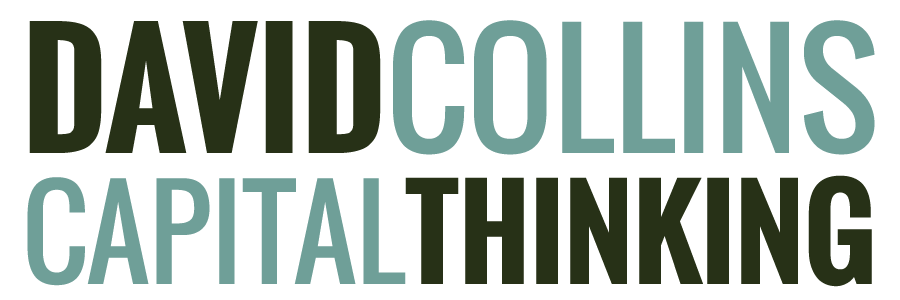As 2021 is coming to an end, I thought it worthwhile to summarise the year by reviewing my articles and the outcomes.
- Simon Bridges and the Wokish Commissioner of Police
I accused Simon Bridges of attacking the wrong person, in relation to what I had experienced with how the police were dealing with a gang problem in my street. I felt the problem was much wider than simply attacking the Police Commissioner and I still believe this. What has become increasingly apparent is that the police have become alarmingly soft on the gangs. There is even a feeling that the police are becoming politized as Mark Mitchell aired on the radio recently, and if so, this is an equally alarming development (Mitchell was relating his comments back to discussions he recently had with the Commissioner over the Northland border controls).
- Kainga Ora
I have written extensively on Kainga Ora and was ahead of the curve, mainly due to my own experience in dealing with them. Whilst our community reached a satisfactory outcome with Kainga Ora, our dealings were difficult and fraught with much frustration.
I believe my community dodged a bullet getting the gang removed from our street as we slowly became aware of Kainga Ora’s “No Eviction” policy. This must be one of the most absurd policy positions. Communities throughout the country, especially in Auckland, are facing multiple problems of anti-social behaviour that goes unabated, due to police inaction and Kainga Ora refusing to take responsibility to rectify the problems. Statements including “it’s a complex issue”, or “we need to have more wrap around services” is simply code for doing nothing (Kainga Ora never addressed our street’s gang problem, instead, at the community meeting we got them to attend, they talked about the many complex social problems people have. Then they made racial slurs that because we were white middle-class people, we did not understand these problems. Along with a racial slur, it was an insult, failing to understand that some white middle-class people also once lived in state housing. The fact we became successful in our own way was lost on them). It is no wonder that neighbours of Kainga Ora housing are having their lives destroyed, being forced to take legal action against Kainga Ora, or being forced to sell up and move south. Kainga Ora have breached its own act and the law itself, but have chosen not to change its policy. As I wrote, when the government fails to respect the law and its own act of parliament, then we are heading down a very slippery slope.
Sadly, while this government is in power, not much will change and as a result, the innocent and law-abiding citizens who live next to Kainga Ora housing will continue suffering.
- He Puapua
This remains a burning issue and now quietly flies under the radar as many on the right are afraid to talk about the issue because of being attacked by a left leaning media and commentators as being racist. As someone said to me, accusing someone of being a racist on this matter is not a counter argument. It is an insult and a racial statement in itself. It also states a feeling of guilt.
He Puapua is in fact an ethno-nationalist document that is quietly being implemented by the government in the guise of co-governance. It is a separatist document, no more and no less. We are seeing its implementation in the health system, via Three Waters and the increasing use of Māori names over English. I am not opposed to a bilingual system, but when English names and words are being completely dropped away in favour of Māori words, we are witnessing the usurping of one language over another. Two wrongs do not make a right.
I have only mentioned a few, but there are other examples around conservation land and even the SNA has some elements of He Puapua (I will address the SNA issue next year).
- Three Waters
When I started writing on Three Waters, not many understood what Three Waters was about. It initially created little media attention, even though councils and the opposition were raising it as a major issue.
It was pleasing to again be ahead of the curve, as much has now been written. Most councils opted out of Three Waters and the government became annoyed (ala Nanaia Mahuta). Slowly the opposition got media traction, and rightly, Chris Luxon has called Three Waters unworkable, complicated and a land grab, which it is.
The opposition has been fierce, however Mahuta is intent on pushing through this “reform”. I wrote, as Luxon said “more councils pulling out could prompt the minister to take a harder line and force councils to join” (RNZ, 2 July 2021). He adds, “the minister will simply mandate it and make it compulsory. The reason for his statement is that on the one hand the minister has said opting in would be voluntary, but on the other hand, the minister has repeatedly refused to rule out making it mandatory. Thus, this government is prepared to ignore the democratic process and rights of councils, and overrule them by forcing them to join. The government knows that Three Waters is fundamentally flawed and not in the best interest of councils financially or for control. It is a fire sale and a land grab on both counts.”
The point is that councils were given the option. Most councils chose early on to opt out. However, recently we learnt, Mahuta decided in June to make Three Waters mandatory, regardless of the democratic process of councils opting out. Thankfully, Labour is having second thoughts on the process of mandating Three Waters and have delayed their decision until 2022. Will common sense and the democratic process prevail, or will Mahuta’s authoritarian approach and disregard for democracy prevail?
- Wellington City Council and Let’s Get Wellington Moving
Another issue I have addressed was parking in central Wellington. This debate raged back and forth and eventually weekend parking costs increased and were extended to 8pm. It became clear that many Wellington City councillors and Let’s Get Wellington Moving (LGWM) are anti cars. This is because the battle to increase parking costs and the removal of cars from Wellington, is a fundamental part of the ideology driving these two organisations. Despite much opposition, especially from businesses, LGWM has chosen the most radical option to remove all cars from the “Golden Mile” and its side streets. This will remove 22% of shopping traffic from the city centre. Arrogantly, LGWM does not seem to care about this.
Then there was the ridiculous proposal to put a pedestrian crossing on Cobham Drive. After much opposition, this absurd idea has quietly gone away, but I am sure it will raise its ugly head again.
LGWM have proposed four options, mostly focussing on light rail, buses, bikes, and walking. Cars are still seen as evil. LGWM are intent on pushing an inequitable solution to a major transport system that needs to cater for all forms of transport. The failure to understand that most people coming into Wellington, especially from the eastern suburbs, will continue to use cars, is totally lost on LGWM. Yes, they want to shift people out of cars, and that is honourable, but not necessarily practical. In other words, LGWM and many city councillors are thus ideologically driven, which is dangerous and worrying.
- Immigration and MIQ
In this article I wrote that the government were poorly treating immigrants who had obtained residency but could no longer bring in spouses or family. It remains a cruel situation. Doctors, nurses and other skilled workers had their families locked out of the country. Consequently, these people began to drift away. I gave the example of a South African doctor enquiring if Canada was interested in taking her and her family. Yes, they were, so she left New Zealand. Other doctors and nurses simply returned to England because they could not get permanent residency.
As we now know, the immigration department has gone from processing an application a day, to an application a week. This is a deliberate government decision that defies belief. We all know the minister has been missing in action all year. Why?
I did not write about MIQ, but I did question the government’s initial slow response to Covid-19. The link here is that at the time, we had to leave the border open to allow New Zealanders to come home. We had a legal right to do so. Currently we have 24,000 New Zealanders stuck overseas who cannot get home. As Chris Bishop has stated, this is a farcical situation, and the system is broken. MIQ is in contravention of vaccinated New Zealanders’ rights to freely return home, as the government so righteously prompted at the beginning of the pandemic. A classic case of hypocrisy.
- The Media
I wrote several articles on the media, and how generally the media has moved to the left. I sighted many examples of this. For example, TV One, TV3, Stuff and Newshub are very much left leaning. This makes it very had for a balanced argument to develop. A good example of this was when Andrea Vance “slurred” the Tax Payers Union in an opinion piece in Stuff over Three Waters, effectively calling them racist. When the Taxpayers Union sought a right of reply, Stuff said they could only write 150 words, no more than a letter to the editor. When they tried to fund their own article as an advertisement, Stuff flatly refused to allow this. The consequence of this was that there was no fair and unbiased debate.
It will be interesting over the coming months to see how the media will treat the debate on Three Waters, for example, and the broad range of critical issues that should concern all of us.
I would like to finish my writing for the year by wishing all my readers a very merry Christmas and a great start to 2022. I am sure next year will be as equally challenging as 2021. I look forward to continuing to share my thoughts and openly debate the concerning issues of the day, whilst progressing my crusade to promote democracy.
Thank you for your support, see you in February.
Season’s Greetings
David.

